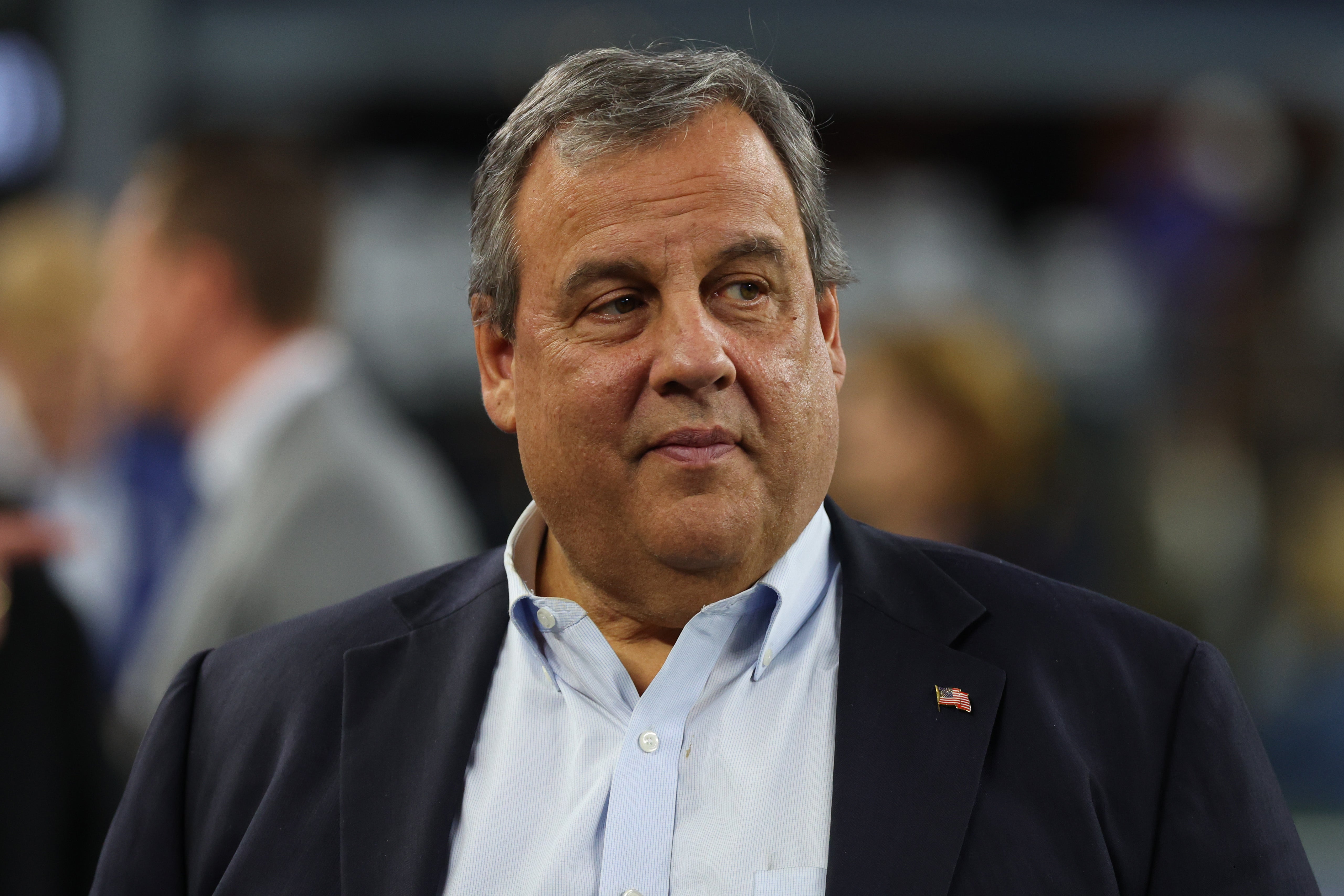The Independent's journalism is supported by our readers. When you purchase through links on our site, we may earn commission.
Chris Christie gave Trump legitimacy. Now he can’t stop Trump in 2024
Christie was one of the first major endorsers of Trump. That gave Trump legitimacy and has made Christie irrelevant


Running for president is as much about timing as anything else. When Barack Obama ran, Ted Kennedy, the patriarch of the Kennedy clan who had a failed White House run under his belt, notably told the would-be president: “You don’t choose the time. The time chooses you.”
The 2012 presidential race was likely Chris Christie’s time. In 2009, he won the governorship in staunchly Democratic New Jersey and had become a favorite of conservatives for his willingness to combat teachers’ unions and other Democratic groups in moments that went viral in the right-wing media ecosystem. It was “owning the libs” before “owning the libs” was a thing.
But he notably passed on running for the nomination to challenge Mr Obama, saying in 2011, “Now is not my time.”
At the time, the move seemed prudent. In the weeks before the 2012 election, he led the state during Hurricane Sandy and while images of him hugging Mr Obama angered conservatives in the weeks before voters cast their ballots, it led to him winning re-election in 2013 by overwhelming margins.
Of course, we know what happened next. Revelations that members of Mr Christie’s team ordered two of the three lanes on the George Washington Bridge to be closed, which caused a massive traffic jam, cratered the governor’s numbers. He entered the 2016 Republican primary badly bruised from the scandal. He left the contest after a poor showing in the New Hampshire primary, but not before infamously performing a kamikaze mission on Sen Marco Rubio (R-FL) in one of the debates that made the one-time conservative phenom seem rehearsed and someone who could not deviate from his prepared lines.
In the following days, Mr Christie endorsed Donald Trump, rarely leaving his side at one point was considered to be a potential running-mate or attorney general in a Trump administration, an idea vetoed by Jared Kushner. Nonetheless, Mr Christie’s endorsement of the future president lent him credibility and gave Republicans something they needed to cast their ballot for the reality television star who had never held public office before – permission.
Now, Mr Christie has announced another quixotic White House run. As an elected official who left his office in disgrace and who has not held a position for years in a radically changed GOP, Mr Christie is unlikely to win. But most observers see his run as an attempt to stop Mr Trump from winning again.
Republicans are about as likely to receive his message warning about the perils of another Trump presidency as they would be likely to receive the message from Liz Cheney.
Indeed, many other Republican presidential candidates face the very same problem. As McKay Coppins at The Atlantic has noted, former vice president Mike Pence spent years convincing evangelical Christian voters that they could support Mr Trump despite his character shortcomings. Mr Trump’s conduct would be immaterial as long as he enacted an agenda they wanted and he would nominate the right judges, which he did when he picked the Supreme Court jurists who helped overturn Roe v Wade. But now Mr Pence finds himself in a bind because personal decency isn’t seen as a reason he’d be a better option than Mr Trump.
The same goes for Sen Tim Scott (R-SC). On Monday, he went on The View and said that voters found his “optimistic, positive message” refreshing “as opposed to having a message around populism, having a message on principles.” But Mr Scott served in the Senate throughout Mr Trump’s tenure in the White House and did little to temper Mr Trump’s scorched earth rhetoric about “America Carnage”. By doing so, he made Republican primary voters see aggressive nationalistic, anti-immigrant and oftentimes racist rhetoric to be acceptable as a form of conservatism.
Mr Trump’s most credible challenger, Florida Gov Ron DeSantis, also finds himself in the same predicament. He’s sold himself as someone who can not only enact a conservative agenda without all of the personal baggage, but someone who also can win when he does so, going from barely winning his first gubernatorial contest to winning re-election by almost 20 points. But Mr DeSantis sold himself as an acolyte of Mr Trump in his 2018 primary campaign and did little to push back on Mr Trump’s lie that the 2020 election was stolen. If voters don’t believe Mr Trump lost, then it renders the idea Mr Trump is a loser and Mr DeSantis is a winner moot.
All of these Republican candidates now find themselves in a prison of their own making; ever since Mr Trump became the GOP nominee for president seven years ago, they served as the spoonful of conservative sugar to help the Trump medicine go down. But now, GOP voters see Mr Trump as the standard bearer and will reject anyone who tells them otherwise, including the people who fed him to them in the first place and as they have gone past their expiration date.
Join our commenting forum
Join thought-provoking conversations, follow other Independent readers and see their replies
Comments


Bookmark popover
Removed from bookmarks